The Philippines is divided in many ways: its islands, culture, politics, and more. Just like water and oil, there are aspects of the country that don’t seem to merge well. For example, Islam and Catholicism.
As someone who was raised in Luzon (the northern main island of the Phillipines), Islamic culture was peripheral for me. The things I knew about Islam were through what I heard from people around me, and I didn’t really know who they were.
During my visit back to my country, I made sure to explore this side of my heritage. The Philippines was an Islamic state before it was Catholic. I visited Mindanao, a southern island where the majority of the Muslim community resides. Speaking with locals, there was a clear disconnect between the majority Catholic North and the Islamic South.
After a couple of weeks of visiting, I found out about a relative who converted to Islam. I spoke with her about her experience to try and see through her eyes.
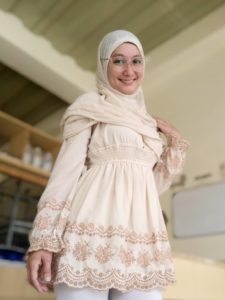
Juan Jocom: Who are you and where are you from?
Pearl Lagman: Hi, Salaam alaikum. I’m Dr. Pearl Lagman, Veterinarian, here in Pampanga, Philippines.
JJ: You recently converted to Islam. Have you always been a Roman Catholic?
PL : From birth, yes… I was set to be a Roman Catholic. I don’t know how things went. I was really active in it in Sunday school. I was even a junior catechist. But there were certain times in my life that made me drift away from my connection in general with religion.
JJ: Would you define yourself as a religious person before that?
PL: I was very active in church, actually until early college days.
JJ: Was there any major life change, or was it just that more skepticism was growing? Or you cannot tell why you drifted away?
PL: I would say both. It was a series of life events, and the skepticism as well. I was an activist before learning the theoreticals of being an activist. That would lead to me questioning everything that’s been going on in my life.
About the skepticism; my mom is a devout Catholic… I particularly remember: Mom and I were sitting in the coach in front of the TV. Then we were watching this news about Payatas, the smoky mountain, the dumpsite. Children there were dying from hunger and poverty and insane diseases of all sorts. I was thinking, “Whose responsibility is this? Why are there people who are experiencing this?” But out of nowhere, my mom said, “If these people would go to church they would help them.” I was like, “If the church would actually like to help, why wouldn’t they go to them?” It was a simple question, but it got scary, my mom got really mad at me. My mom was like, “Why are you like that? The church is there, they only need to go.”
The skepticism would come from, “Okay, if devout Catholics think this way, then who are the real Catholics?”
JJ: Why Islam?
PL: I was an atheist around 2011 up to late last year. I think god willed it, that I would be open to another world, another book. It started when I was going through stuff in my life. I got depressed, I got anxiety spells and really stressed, and then my boyfriend suggested, “Try listening to the Quran.” I’ve tried everything: the chakra healing music, listening to rainforest sound on YouTube, I started listening to Quran while driving to my other work…I really connected somehow to the honesty and strictness in it, and the openness at the same time… I cannot stress how much I identify with Islam as compared to other religions.
JJ: As a Muslim woman in the Philippines, what do you think a lot of Filipinos get wrong about Islam?
PL: In general, it’s still the extremists versus the true Muslim. The acts of terror by the extremist…I would be totally against it… Islam by its root means peace. It’s so insane what they [extremists] are doing. I can’t really speak for everything, but it would and it already did plant negative cultural ideas about Islam.
JJ: Do you feel sometimes you’re looked at as an extremist?
PL: Here in the Philippines, not so much, but the first time I wore the hijab was insane.
JJ: Tell me about your first day being outside and wearing your hijab and all the coverings and representing your religion.
PL: I converted on Jan. 2, 2022, but I wasn’t wearing the hijab then. Even wearing the hijab was a process for me. I practically started wearing my hijab around March. Honestly speaking, I was scared of how people would look at me, how people would think of me when I go out and wear a hijab.
JJ:Why do you wear the hijab?
PL: I have a very personal reason why I wear the hijab… me wearing the hijab means I am shielding myself and covering myself, so I would be respected. It’s more of the respect I want. At first, I was scared, but it’s what I wanted. I wanted to cover myself, I wanted people to respect me, I want them to focus on how I am as a person, how I talk, how I think, how I express myself, not just with my body.
JJ: Is it okay for you to walk me through the bank incident?
PL: My hair was covered, and I was also wearing a mask. When I was walking inside [the bank], the security guard asked me to show my face. I said, “Okay,” so I pulled down the mask so that he could see.. I put it up again. But he didn’t stop, he asked me to remove my hijab. I was like, “What? You saw my face already, and I’m a Muslim.” He said, “It’s bank protocol.”
“Sir, what are you doing? What about other Muslim women… Do you always do this to them?” I was really offended, I was about to cry. It was just a lunch break withdrawal I had to do. He was so relentless. In my head, I was already about to cry, and I was stressed that I had to go back to the clinic. So, I removed the hijab and asked him if I could put it back, and he still said, “No.” So, I just went back to my transaction.
It was my first day wearing my hijab, and you did that to me? Like why? I did not show them that I was crying, but as soon as I sat in my car seat, I was crying like hell. I complained about it. The bank manager was apologetic about it.
JJ: Do you take offense when Catholics make comments about Islam? Have you experienced any of that?
PL: I personally have not experienced that, yet. There were certain hints, though, that you can see, especially in the family, that were more devastating for me. People having issues with me being a Muslim, that would be the small hints that I hear from my mom. My mom would sometimes say, “I miss seeing your hair. Where is your hair?” It’s not really something offensive, but the tiny hints. My mom is a reasonable person. I’m sure it put a little scratch in her heart because she’s a super devout Catholic. I told my brother and my brother was super cool with it.
JJ: Did people treat you any differently after you converted?
PL : This friend of mine, he’s a good person. He was an elder brother, he’s the number 1 example of machismo. He always thought at first I converted into Islam because of my boyfriend, which is totally wrong; I fell in love with Quran.
He treats it as a joke. He would say: “Oh, doc is a Muslim now ‘cuz her boyfriend is a Muslim… stop wearing that thing in your head, it makes your face round, you look fat in it.” I struggled the first time he did it, but he doesn’t do it anymore.
JJ: You’re almost becoming a walking information center. It’s amazing how you are merely practicing your religion, and, in a way, it’s becoming activism.
PL: To me, my identification with Islam as a religion, specifically the women in Islam, is more for the activism part. I’m not saying to insult or degrade anybody, but most of the muslim brothers and sisters here in the country are in the minority. When you went to the palengke (public market), most of the vendors there are Muslim people. Say 80% of the Filipino population is already Catholic, and Muslims would be 5% or 6%, [then] the intellectual or professional muslim would be less than 5%. What I’m saying is to speak for the people who can’t.
JJ: Do you feel like you’re underrepresented or misrepresented in the community? In the media? In the Philippines?
PL: Oh yeah. In the media, specifically. I dont even know for a fact if he is a Muslim, [but] in national television, I think there’s only one [Muslim] who is a field reporter.
JJ: How about Muslim people like you who represent you in the politics?
PL: Here in Luzon? I don’t really know much. I think there’s even none.
JJ: Do you think it’s important for you to have that?
PL: Of course. The fact that I don’t know anyone at all who represents the Islamic community here in Pampanga… it alarms me.
JJ: It’s easy to forget when you live in such a massive group of people and you’re surrounded by them, but when you really think of it, “Who represents me?”, in a way, you are representing yourself, you are your own representation and it becomes your responsibility.
PL: That’s a huge responsibility. It came to me just now when you said it. In 2017 was the height of the Marawi city war. Late that year, around that September, I got the chance to visit the evacuation site in Iligan city. I was super artistic back then, writing stuff, and I had my video camera. I just took footage, and I made it into a poetic documentary. I’m really glad that the short is in the international archives of the culture.
JJ: If there is a Filipino in front of you, maybe coming from any kind of religion, what would you tell them?
PL: Salaam alaikum. You are still my brother or sister, you can talk with me as basic as possible, just how you are, and all I would be is a listener and a bearer of peace if you need.
JJ: Just come as you are.
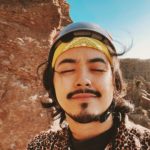
Juan Miguel Jocom, or Juanita Banana as his friends call him, is an Editorial Board member at the Seattle Collegian, where he focuses on writing about the experience of immigrant students at Seattle Central College. A documentarian, he hopes to create videos that will showcase the chaos and glory of humans.
As a Seattle local, he’s an aspiring granola boy, who enjoys rock climbing and jumping off cliffs. His recent documentary, Welcome to the Neighborhood, was an official selected entry for the 2021 SCOOP film fest.

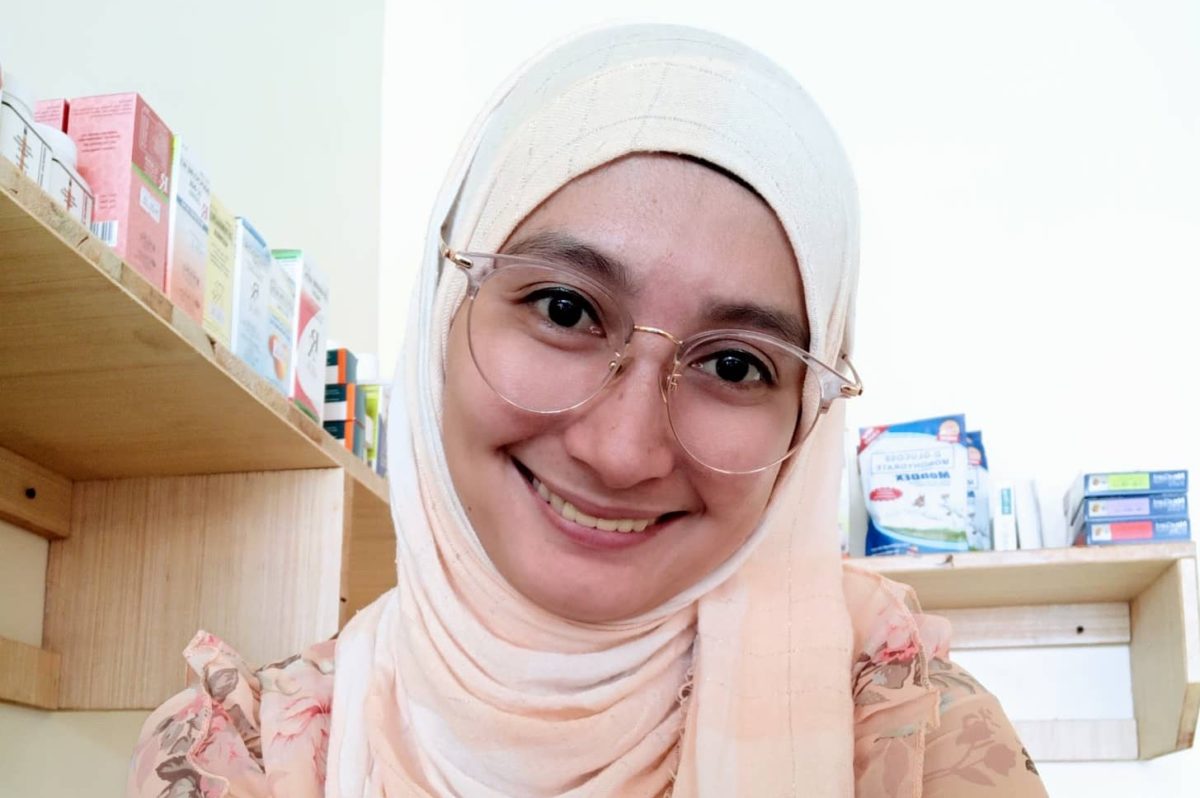
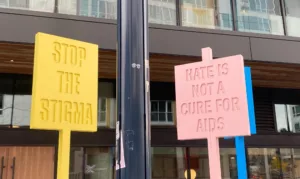
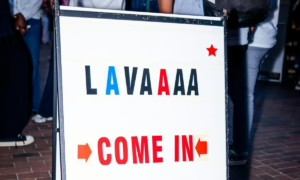
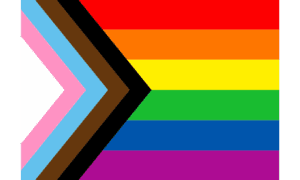
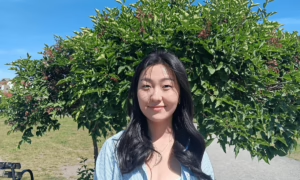
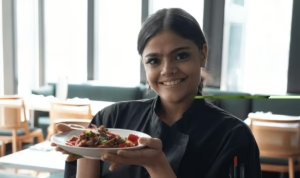
Be First to Comment